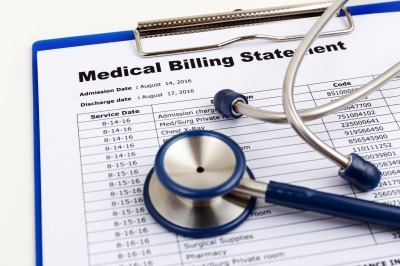|
Overview
“Medical/dental” is supposed to be part 9 of my writing series. To see full complete spending categories, read my February 2016 newsletter at http://prudentmoneycoach.com/blog/archives/02-2016. Introduction Everyone needs health care regardless of age. Some people require more than others, but unless you have health coverage, you would most likely have to pay for medical, dental, and vision care. If you live in a developed country, most likely you have health coverage. In Canada, specifically in British Columbia, we have provincial health insurance program, called Medical Services Plan (MSP). If you are an eligible BC resident, you are covered for certain services. For more information, you can visit http://www2.gov.bc.ca, look under “Health”. What are the Expenses? Medical expenses could include doctor’s visit, prescription, check-up, laboratory work, and others. It can include vision and dental as well. Many expenses are covered by MSP, but if you have extended health care coverage, you are covered for more products and services. For example, eye exams for children are covered by MSP, but not for adults. If you have extended health care, your insurance may pay for all or part of the exam fees. Tax Tips Speak to your Tax Professional for information pertaining to your specific situation. 1. Did you know that you don’t have to use January 1st to December 31st as your medical expense period? You can pick any twelve-month period that ends in the tax year you are filing. For example, for 2016 tax, you could pick February 1, 2015 to January 31, 2016 as your medical expense period, claiming all medical expenses within this time period for your 2016 tax. 2. Did you know that you can claim out-of-country medical expenses in your tax return? See http://www.cra-arc.gc.ca/medical/#mdcl_xpns. 3. Did you know that moving expenses may qualify as medical expenses? See http://www.cra-arc.gc.ca/tx/ndvdls/tpcs/ncm-tx/rtrn/cmpltng/ddctns/lns300-350/330-331/dtlxpns-eng.html#mvng. 4. For a list of eligible medical expenses to be claimed in your tax, visit http://www.cra-arc.gc.ca/medical/. 5. If you have enough money saved up, it is best to pay all your medical expenses at once to maximize the tax credit claim. Why? Because your eligible medical expenses have to be reduced by 3% of your net income before they are claimed. So, if you have $6,000 orthodontist bill and are given option to pay it monthly at $200/month for 30 months, it would be better to pay $6,000 all at once if you have the money. Here’s the calculation. Let’s say your net income is $50,000. 3% of your net income = 3% * $50,000 = $1,500.
Shop around for Best Insurance Premium If you have no extended health coverage from your employer, or if you are self-employed and you are interested in getting additional coverage, shop around for the best medical insurance that would fit your need. Compare prices and coverage. The cheapest premium may not mean the best option for you. Ask for deductibles (if any), service coverage, and claim process. Conclusion Everyone will need a medical service sooner or later; make sure you are covered. Have medical insurance and emergency fund to cover extra medical expenses. For more help with reducing your money-related stress, contact me at (six zero four) 728-5139 or Effie[at]PrudentMoneyCoach[dot]com. Take advantage of my free first assessment meeting to see if we are a good fit.
0 Comments
Your comment will be posted after it is approved.
Leave a Reply. |
AuthorCommitted to help clients to be literate about their personal financial situations, to reduce their money-related stress, and to help them achieve their financial goals. Archives
March 2025
Categories |

 RSS Feed
RSS Feed